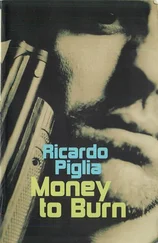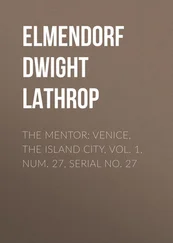“You’re English,” the policeman said.
“My parents were English,” Junior responded.
“You worked on the Museum series, for El Mundo.”
“I still work there. I can make my sources available to you. Call the newspaper if you want.”
“A routine question,” the officer said. “Who won the war?”
“Us.”
The officer smiled. They wanted to control the principle of reality.
“That’s funny. Us who?”
“The Kelpers,” Junior said.
The officer enjoyed the answer. Amused, he turned around to one of his assistants. Then he lowered his head and looked at Junior.
“Do you know that this girl is Article 22?”
“Article 22?”
“Street prostitution.”
“That’s why she was with me,” Junior said. “A hundred dollars a night.”
“I’d rather not be touched,” the girl said when the officer approached her, keeping an absent air about her the whole time. “I make a living my own way, and that’s all I care about.”
“I won’t touch you. Her problem is not political. It’s her hallucinations.”
A woman cop joined the others now. She was fat and had a face that made her look like an evil character in a TV series, not even a Nazi, something worse, more mechanical, smoother.
“You’re ill, child,” she said. “You have to go to the hospital. They’ll cure you there.”
“To which hospital?” the girl asked.
“The neuropsychiatry clinic in Avellaneda.”
“Bastards,” the girl said. “Let me call a lawyer.”
Now that she knew what awaited her, she was in shock. She stood still, withdrawn. Then she leaned against the wall and closed her eyes. She had learned to save her strength and was getting ready to face what she knew she would soon be up against without any illusions.
“She believes in the Engineer, but it’s really an illusion. The Engineer died years ago, there is no factory, she can’t accept reality. She’s psychotic,” the officer said. “She’s been hospitalized in Santa Lucía since she was seven years old, she’s schizo-anarchoid. That man doesn’t exist, there’s a doctor who she calls the Engineer, there’s nothing else to it, it’s a clinic. She dreams that she moves around in that marginal world, like a messenger, when in reality she’s a prostitute who passes information on to the police.”
“Maybe, maybe, maybe,” Julia sang out. “He’s there, I know it,” she said. “When I get out I’ll take you.”
“See? She has been able to adjust to living out in the real world completely, except for that one fixed idea. It will never disappear, it’s indispensable in the balance of her life. But she has to learn to relate to reality, not to a fantasy. And that’s what we’re here for. To think that there’s an internationally renowned physicist hidden in our country. It’s an innocuous idea and it helps her survive. But it’s false and cannot be propagated. She lives in an imaginary reality,” the officer said. “She’s at the external phase of the fantasy, an addict running away from herself. She interjects her hallucinations and must be watched.” This was the kind of crazy lingo that the police were using now, psychiatric and military at the same time. This was how they intended to counteract the illusory effects created by the machine. Junior remembered his father’s ideas about deliriums associated with simulations, and thought that the officer had a removed quality, perverse, as if he thought that simply by being there, alone in his office, he was capable of excluding himself from the world.
“The police,” he said, “are completely removed from all the fantasies. We are reality. We are constantly obtaining true confessions and revelations. We care only about real events. We are servants of the truth.”
Junior looked at him, but did not say anything.
“We need to verify a few facts,” the officer said, “and then we’ll let you go.”
“And the girl?”
“The girl stays, you go. There always has to be some kind of exchange.”
“I don’t like it,” Junior said.
“I didn’t ask you if you liked it, I asked you to tell me your sources.”
They made a phone call to the newspaper and immediately released him. He was unable to see Julia. They only allowed him to leave cigarettes and some money for her, although he knew for certain that the same guard who took them would steal them as soon as he left. Junior went out to the street. The buses were heading out toward the city suburbs full of men and women just getting off work. He was at the corner of Paraguay and Maipú. The girl had not turned him in, they had gotten her because of the drugs. The police had not bothered to requisition the papers that she had given him, they had not even opened the envelope. It looked like a blue filing card, with a few facts typed on it. There were a few references to Richter, the Engineer, a German physicist. Then numbers and quotations from several stories, especially from “Stephen Stevensen.” That was the point of departure.
He spent the next two days alone in his room. He went over the entire series of stories again. There was an implicit message that linked them all together, a message that was being repeated. There was a factory, an island, a German physicist. Allusions to the Museum and to the history of its construction. As if the machine had built its own memory. That was the logic being applied. The events were being directly incorporated, it was no longer a closed system, it was weaving in real facts. She was influenced by other forces — external ones — that entered into the program. Not just situations in the present, Junior thought. It narrates what it knows, it never anticipates. He went back to “Stevensen.” It was all there already. The first text demonstrates the process. He had to continue searching along these lines. Investigate what was being repeated. It builds microscopic replicas, virtual doubles, William Wilson, Stephen Stevensen. Once again this same point of departure, a ring at the center of the story. The Museum was circular, like time in the plains. He went back to the story, to the beginning, to the first phrase of the series. “My name is Stephen Stevensen. I am the grandson and great-grandson and great-great-grandson of sailors. My father was the only deserter, and that is why he lived his entire life with the same woman and died a miserable man in a hospital in Dublin. (Stevensen’s father had refused to go into the British navy, breaking the very ancient family tradition, and had become an Irish nationalist. His mother’s ancestors were Polish. A sarcastic and elegant woman who spent the summers in Málaga, or in the British Museum.) Stevensen was born in Oxford and every language was his mother tongue. Maybe that is why I believed the story he told me, and why I am here, in this lost cattle ranch. But if the story he told me is not true, then Stephen Stevensen is a philosopher and a magician, a clandestine inventor of worlds, like Fourier, or Macedonio Fernández.”
Junior was starting to understand. At first the machine would get it wrong. Errors are the first beginning. The machine “spontaneously” breaks up the elements of Poe’s story and transforms them into potential fictional nuclei. That is how the initial plot had emerged. The myth of origin. All the stories came from there. The future meaning of what was occurring depended on that story about the other and what is to come. Reality was defined by the possible (and not by what was). The true-false opposition had to be substituted by the possible-impossible opposition. The original manuscript was coiled in a tin cylinder. He was having a hard time reading with his glasses. I am getting more and more myopic every day, Junior thought, moving his face closer to the glass box. It looked like a strip of teletype. “I first arrived here on Wednesday May 4 at three in the afternoon, on a train that was continuing on to Pergamino. I had been invited by the Academia Pampeana and the Jockey Club to spend three months in the large ranch and study the projects of the Scientific Society. I am a doctor (and a writer), I have been in this town for months. I want to meet Doctor Stevensen. He is one of the major English naturalists of the century, Argentine by choice, a descendent of European travelers and researchers who came to these plains to study the habits of the natives. I admired his books, I had read his marvelous Mechanical Birds, as well as his biological essays, and his extraordinary White Voyage. It has been so long that everything seems unreal to me. But perhaps instead of talking about unreality, I should talk about inexactness. Truth is exact, like the circumference of the crystal glass that measures the time of the stars. The slightest distortion and everything is lost. Lying is no longer an ethical alteration, but rather the failure of a steam engine the size of this fingernail. What I mean to say (Stevensen used to say), is that truth is a microscopic artifact that serves to measure the order of the world with millimetric precision. An optical device, like the porcelain cones that watchmakers adjust on their left eye when taking apart the invisible gears of the very complex instruments that control the artificial rhythms of time. Stephen Stevensen has dedicated his existence to building a miniature replica of the order of the world. As if he wanted to study life in a dry aquarium, the fish opening and closing their mouths in the transparent air for hours on end. He actually decided (I think) that I was part of his experiments and that he would study my reactions. Now I understand that he has been watching me, that he has been observing me ever since I arrived. Or maybe from before, since I took the train in La Plata, and maybe even from the moment I left my house. He lived in the old buildings of the La Blanqueada ranch immediately before me. The morning I arrived he left me the house and moved to the Hotel Colón, with all his papers and machines. He did not return to Buenos Aires, he extended his stay in the town with some sort of trivial excuse (having to do with his sister). Stevensen’s invisible presence accompanied me from the very moment I first entered the large house. I felt like someone who enters surreptitiously into the soul of a stranger and rummages in the night trying to discover the stranger’s secrets. At first I thought that Stevensen, out of an aristocratic carelessness, had left traces of himself throughout the house. Now I know that it was not out of carelessness. This is a provisional list of the objects I found when I searched the house on the first day.”
Читать дальше












